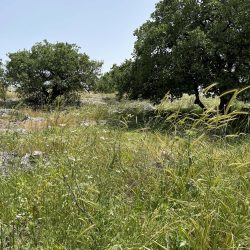 |
IWGP Research Group:
|
Description
The research group provides a platform for investigating, discussing and promoting a better understanding of the origins and development of plant management and domestication in southwest Asia (broadly defined as the area commonly referred to as the Fertile Crescent and adjacent regions). Evidence for such processes may derive from different periods, including the Epipalaeolithic, Neolithic, Chalcolithic and Bronze Age. Methodologically, the research group focuses on macro- and microbotanical remains, including (but not limited to) carpology, anthracology, aDNA, phytoliths, starch grains and stable isotopes.
We also foster communication within and beyond the research community. This can involve sharing preliminary results, communicating novel approaches and concepts, and discussing methodological challenges.
To support these activities, the research group aims to organise regular meetings and workshops, which also provide an opportunity for networking and skills development, especially for students and early career researchers.
The idea for this research group emerged during the Symposium “Plant exploitation and management during the emergence of farming in southwest Asia: recent insights and new approaches” organised by Jade Whitlam and Alex Weide (then both at the School of Archaeology, University of Oxford) and, due to the pandemic, held over two online meetings in 2020 and 2021. A group of early career researchers then liaised with the IWGP to formally set up the research group, which included Amaia Arranz-Otaegui, Chiara Belli, Carolyne Douché, Müge Ergun, Ceren Kabukcu, Monica Ramsey, Alex Weide, and Jade Whitlam.
Coordinators
Membership
To join the group and receive announcements, please sign up to our mailing list: www.jiscmail.ac.uk/IWGP-SWA-PLANTDOM
Upcoming Events
2024 Research Group Meeting: Building Common Ground on Concepts, Data, and Interpretation
In this meeting, researchers working around the world will convene to offer state-of-the-art perspectives and share new data on plant management and domestication in southwest Asia. We expect this first […]
Past Events
There are no upcoming events at this time
Background image: Charred cultivated plant remains from Fuente Álamo (prov. Almería, Spain), Bronze Age El Argar culture © Hans-Peter Stika
